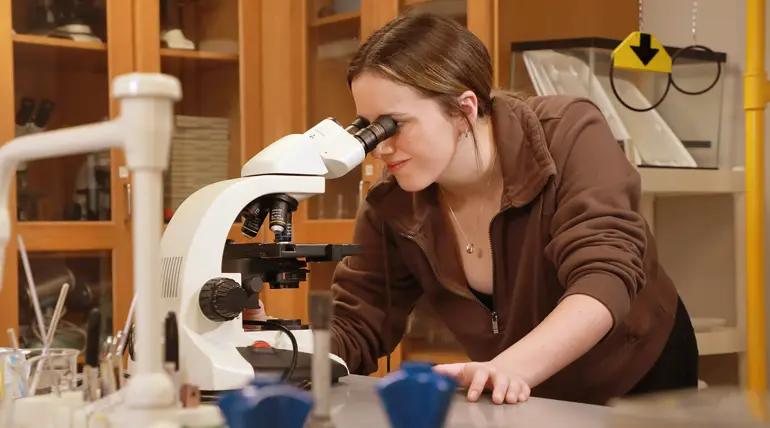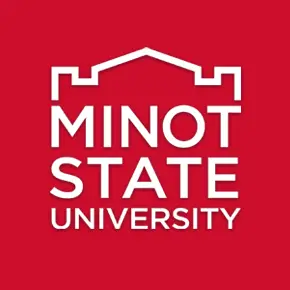Bioinformatics and computational biology could be a great fit if you love science, technology, and solving complex problems. This field combines computer science, math, and biology to analyze large datasets, like genetic information, with applications in healthcare and biotechnology. You’ll work on exciting projects related to disease research and medical treatments. If you’re curious and want a career at the intersection of science and technology, this major offers fantastic opportunities.
Offered: On Campus
Credit Hours: 120
Est. Time to Complete: 4 Years
Department: Department of Science
96%
Job/Graduate School Placement Rate

Exclusive Regional Program
The bioinformatics and computational biology program is the only undergraduate program of its kind in a five-state area.
Program Highlights
Coursework
The bioinformatics and computational biology major includes coursework in chemistry, biology, bioinformatics, computer science, and mathematics. Students who complete a biology major can earn a bioinformatics and computational biology minor by taking required mathematics, computer science, and bioinformatics courses.
Our Facilities
Our laboratories are equipped with exceptional computing resources and the latest in molecular biology equipment.
Experienced Faculty
Our faculty is at the forefront of research in genomics, bioinformatics, and computational biology. Their expertise spans several areas, including phylogenetic analysis, the design and production of DNA microarrays, genomic analysis of bacteria and bacterial populations through metagenomics, and the development of distributed computing platforms for tackling bioinformatics challenges.
Careers & Outcomes
106K
Median annual salary for bioengineers
→ U.S. Bureau of Labor Statistics
Top Careers
- Bioengineers
- Natural Science Manager
- Biological Scientist
Questions? We're Here to Help

Office of Enrollment Services
701-858-3350
1-800-777-0750 ext 3350
askmsu@minotstateu.edu

Dr. Rachel Schomaker
Assistant Professor
701-858-3508
rachel.schomaker@minotstateu.edu
Additional Program Information
Minot State University is accredited by the Higher Learning Commission, a regional accreditation agency recognized by the U.S. Department of Education.







